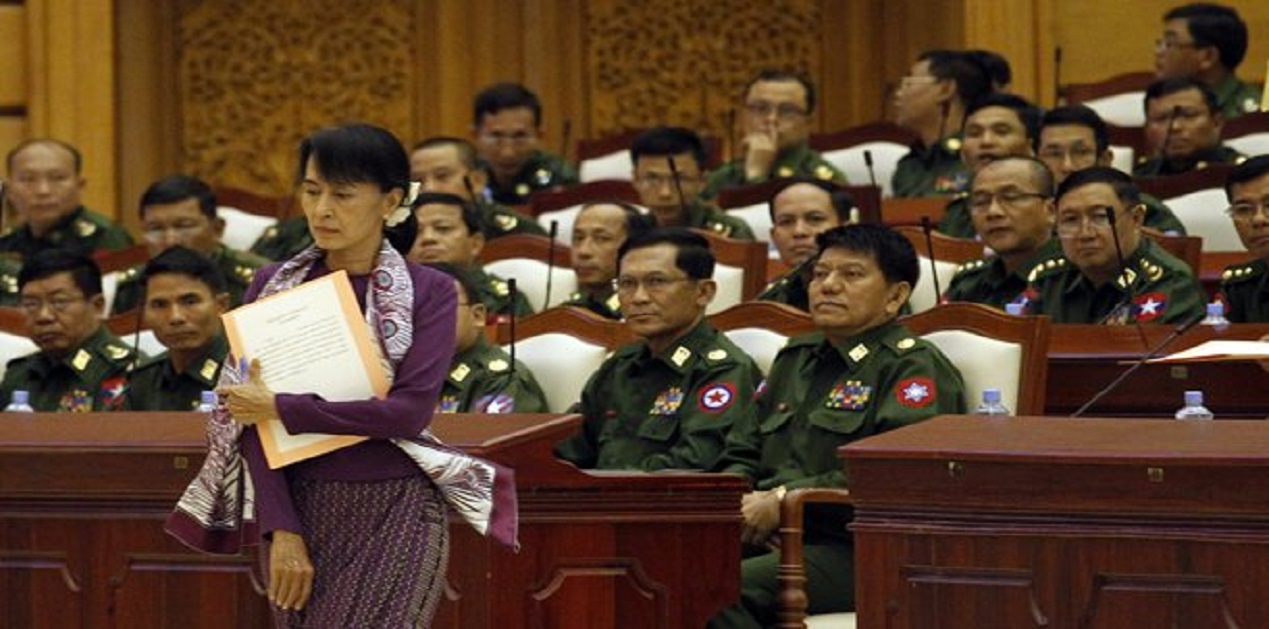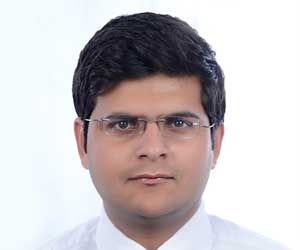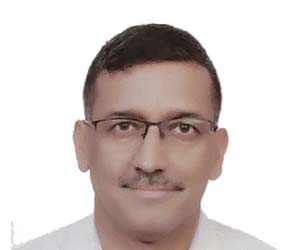“…it is clear that China will never be an honest broker capable of mediating a peace process that can bring lasting peace to Myanmar. Rather, China conducts a peace process guided by its own interests—one that goes nowhere.” - Joe Kumbun1
Increased tensions, violence, claims and counter claims dominated the month and ensured that the fog of war hung low and heavy on the Myanmar nation. Disparate democratic initiatives ensured that the discourse continued on its long journey to a ‘true’ democracy.
Continued Violence
The violence of the previous month spilled over2 into this one even as negotiations between the National Reconciliation and Peace Center (NRPC)4 and the Northern Alliance (NA), composed of four ethnic groups Kachin Independence Army (KIA), Myanmar National Democratic Alliance Army (MNDAA), Ta’ang National Liberation Army (TNLA) and the Arakan Army (AA) took place in Kengtung township in Shan State4,5 on 17 Sep 2019. Without giving out the details, Mr Zaw Htay, Director-General of Ministry of State Counsellor Office informed that both sides had agreed to control the outbreak of renewed fighting; to establish a communication system and open liaison offices; signing of the bilateral ceasefire agreement; management of Internally Displaced Persons (IDPs); the deployment of troops and the rules and regulations to be followed by both sides to avoid renewed fighting. The NRPC and the NA have agreed to meet in October 2019 again.
Hostilities continued between Tatmadaw (Myanmar Army) and the different ethnic armed groups. Air strikes were also carried out by the Tatmadaw against the AA on 17 Sep 2019, a day before the Kengtung peace talks. 6
Chinese Engagement in Myanmar
Bangladesh, China and Myanmar agreed to form a tripartite Joint Working Group to oversee the Rohingyas repatriation to Myanmar.7 The proposal to form this group was mooted by China on the side-lines of UNGA meeting and both Bangladesh and Myanmar have agreed upon it. The first meeting of this Joint Working Group is expected to meet in Oct 2019.8 The chance of success of this joint working group looks very thin as conflict between Arakan Army and Myanmar Army has escalated since January and pushed repatriation down Myanmar’s priority list. Myanmar’s government is more focused on the next year’s election.
Further, even the Myanmar sentiment towards the Chinese initiative to resolve the Rohingya issue, amongst other similar Chinese efforts including peace talks with the ethnic armed groups, is tempered with cynicism and caution. The quotation at the beginning of this article is emblematic of this outlook.
Rohingyas
United Kingdom announced an aid of 87 million euros for the Rohingya refugee camp at Cox Bazar, Bangladesh. Till now UK has contributed 226 million euros for maintain the camp at Cox bazar. This new additional aid will help in the reducing the economic and environmental impacts on local communities due to the crisis.9
The USA also announced an additional humanitarian assistance of $ 127 million for the Rohingya refugees, the host communities in Bangladesh and internally displaced Rohingya and other impacted group in Burma. 10 The funding aims to address the emergency needs of 900,000 refugees many of whom are Rohingya women and children. The United States continues to be the major contributor to Myanmar and Bangladesh’s humanitarian response to this crisis and has offered more than $669 million since the outbreak of this crisis in 2017.
A fact-finding committee of United Nations concluded that the conditions of 600,000 Rohingya living in the Rakhine State remains deteriorating and deplorable. The report pointed out that the conditions under which the Rohingya are living in Rakhine is inhumane and more than 40,000 structures have been destroyed in Rakhine since the outbreak of conflict in 2017. It has stated reparation of the Rohingyas by the Bangladesh at present is impossible and has warned Bangladesh against it.
The UN fact finding mission called for an expert assessment as to whether Myanmar’s Civilian leader, Aan San Suu Kyi can be legally implicated in abuse of Rohingya minorities. The Human Rights Council recently set up a panel, Independent International Mechanism for Myanmar (IIMM) to determine whether Aan San Suu Kyi could be held responsible for the genocide. The fact-finding mission last year asked for persecution of top generals, including Army Chief Min Aung Hlaing for the atrocities done by army against the Rohingyas.
The Rohingya who were welcomed by Bangladesh two years ago have now been seen as a menace. In the month of August, Bangladesh made a second failed attempt to send back Rohingyas but none of the refugees boarded the bus. The fighting between the between the Myanmar Army and Arakan Army has escalated since January. Bangladesh’s government is running out of patience and Rohingya are been seen as a security threat. On September 1, the Bangladesh telecom regulator ordered to shut down mobile services within seven in the camps of Cox Bazar due to security reasons. Subsequently, the next day a new ordered was passed to close mobile internet in the camp between 5 p.m. and 6 a.m. 11 Media coverage about the Rohingyas in Bangladesh in the recent months have been xenophobic. The Rohingya community living in Bangladesh has been shown as a ‘threat to national security’ and ‘conspirators’ who wants to occupy Bangladesh. Rohingya bashing has become prominent in TV news where reporters, spokespersons and members of civil societies are trying to show Rohingyas as a curse to Bangladesh.
This month the USA House of Representatives passed the Burma Act. The Act aims to advance the efforts to hold senior officials in Myanmar accountable for their crimes committed against the minorities in Rakhine. The Act has been sent to Senate for approval. Amnesty International has appealed to the Senate to act on the legislation.12
United Nations General Assembly (UNGA), 2019
In the recently concluded UNGA meeting, the issue of Rohingya was raised in the speeches delivered by Prime Minister of Bangladesh and Malaysia. Bangladesh’s Prime Minister Sheikh Hasina dubbed Rohingya crisis as a regional threat. In her speech she requested Myanmar to come up with a clear political will for the sustainable return and reintegration of Rohingyas to their Homeland. She submitted a four-point proposal before the 74th UNGA to resolve the crisis. In the past she had submitted a five-point proposal at the 72nd UNGA. The four-point proposal presented this year recommended a complete implementation of recommendations of the Kofi Annan Commission, and establishment of civilian monitored safe zone in the Rakhine State. She termed the Rohingya issue as an issue between Myanmar and its people and it should be resolved by them.
The Malaysian Prime Minister, Dr Mahathir Mohamad criticised the UN for showing a lack of will in resolving the Rohingya issue. He highlighted that the denunciation of Myanmar by UN for its persecution has not affected the Myanmar. He also blamed the Myanmar leader Aan San Suu Kyi for the crisis and said that she is now standing by the military and supporting their violent acts. The Prime Minster also urged the international community to immediately work towards solving this crisis.
Constitutional Amendment
On the democratic side an important development was that the Tatmadaw tabled a constitutional amendment bill which seeks more stringent selection criteria for selecting senior officials in the country. The 144 military Members of Parliament (MP) led by Brigadier General Maung Maung proposed that the same eligibility rules should be applied to state and government ministers as it is applied for the President.13 Under Section 59 (f) of the 2008 Myanmar Constitution, a presidential candidate must be a citizen, born of parents who are both Myanmar citizens, and cannot have foreign spouses or children or children who have acquired foreign citizenship. The ruling party, National League for democracy wants this provision to be dropped from the Constitution but the Tatmadaw MPs want this to be expanded.
Another controversial bill was tabled by the Opposition Union Solidarity and Development Party (USDP) and Tamadaw MPs jointly to Parliament. This bill confers power to the National Defence and Security Council in its functions and duties to be able to dissolve parliament. This bill was signed by 35 USDP MPs led by opposition party MP Sai Than Naing Oo and 110 Tatmadaw (military) MPs totalling 145 MPs, and submitted to parliament. In this bill, it stipulates in an amended provision, as the duty of the said council (popularly known in Myanmar as Kar Lone) to suggest to the President whether the parliament should be dissolved or not when checks and balances between the three branches of sovereignty, viz. legislative, executive, judiciary, have deteriorated. Moreover, the amended provision in the bill stipulates the Kar Lone must hold regular meetings once every two months and if five members in the council demand to hold a meeting when necessary. The ruling National League for Democracy government has never held Kar Lone meeting so far under its rule in over three and half years. The Kar Lone council is made up of six representatives sent by the Tatmadaw and five elected representatives totalling 11 members. If this bill is passed by the parliament, the Kar Lone council meetings must be held irrespective of consent given by the President and then the Tatmadaw will have more say in the council as it has majority. It is unclear whether this constitution amendment bill will pass as the ruling party has an overwhelming majority in both houses14.
A newly-formed Naga National Party (NNP) will mainly compete in the constituencies of Kachin State and Sagaing Region, said party chairman Shu Maung. The Union Election Commission approved registration of NNP on September 25. "Yesterday, we were permitted to form a party. Today, it is a party of ethnic Naga. Depending on regional and electoral situations, some or all of us will compete. As we have established a political party, we have to run for election. With our electoral strategies, we have to weigh up where will compete in all constituencies or Kachin or Sagaing. It's too early to say now. Roughly saying, we form parties to compete in all regions. We are considering competing in Khamti, Homalin, Tamu, Tanai and Shinbwayyan. We will mainly compete in the constituencies of Kachin State and Sagaing Region," said Shu Maung. As his party does not intend to run for president or chief minister, it will mainly protect the rights of its own ethnic minority, he commented15.
In another development, a court in Yangon’s Taikkyi Township on Friday sentenced a former Myanmar army captain, U Nay Myo Zin, to one year in prison for his critical public remarks about the military leadership in April. He was convicted after a five-month trial of violating Article 505(a) of the Penal Code for persuading military personnel to mutiny or neglect their duties. “I want to be the last person to be arrested under [laws that restrict] freedom of expression. Fight to make sure no more are arrested,” he told the media. “I want the Tatmadaw to try to become a military that obeys the orders of the civilian government,” the former captain added. Though this is an isolated incident so far, however it reflects that subconscious sentiment that the lies within the military and indicates that the democratisation of the Myanmar military needs to be pushed on relentlessly.16
Rohingyas in India
An issue of an illegal Rohingya camp on Hyderabad’s Gurram Cheruvu lake bed came up and the Prime Minister’s Office (PMO) has asked the Telangana Government to investigate on this issue. The Rohingya refugees are living in two camps of UN High Commission for Refugees (UNHCR) in Balapur and Saheennagar in Hyderabad, although due to their growing population the refugees have started building huts in the lake area. The lake area has not been allotted to the refugees or to any agencies and comes under the revenue department of Hyderabad. The issue of spreading of Rohingya camps illegally can lead to security threat issue as notorious elements can live in these camps and can pose a security challenge17.
Conclusion
Democratic developments in Myanmar are positive indicators. Although both the amendments sought to be pushed by the Tatmadaw are regressive, however what is encouraging is that they are trying to do so through the democratic processes, flawed though they may be. Similarly the NNP formation and running for elections is encouraging and may form a model for other ethnic groups. Rohingyas remain a source of concern and the latest discovery of a Rohingya camp in Hyderabad is worrisome.
End Notes
- Joe Kumbun is the pseudonym of a Kachin based analyst as per The Irrawaddy, : https://www.irrawaddy.com/opinion/guest-column/under-chinas-direction-myanmars-peace-process-goes-nowhere.html, Accessed on 29 September, 2019
- https://www.mmtimes.com/news/one-killed-hundreds-flee-new-shan-fighting.html, Accessed on 27 September, 2019
- The President’s Office formed the “National Reconciliation and Peace Center” with the release of Order 50/2016 on 11 July, 2016. This was done in order to set necessary policies and guidelines for ensuring the successful implementation of national reconciliation and peace process, the NRPC was formed with 10 members led by Union Minister for the Office of State Counsellor U Kyaw Tint Swe as chairman together with Union Minister for Border Affairs Lt-Gen Ye Aung as vice chairman and Director-General U Maung Maung Tint of Planning Department of the Ministry of Planning and Finance as secretary. See https://www.mmpeacemonitor.org/1710, Accessed on 28 September, 2019
- https://elevenmyanmar.com/news/nrpc-northern-alliance-agree-to-meet-in-october, Accessed on 25 September, 2019
- https://www.mmtimes.com/news/scores-flee-new-fighting-northern-shan-villages.html, Accessed on 26 September, 2019
- http://www.mizzima.com/article/myanmar-bangladesh-and-china-hold-informal-meeting-over-repatriation, Accessed on 30 September, 2019
- http://www.newsonair.com/Main-News-Details.aspx?id=372023, Accessed on 30 September, 2019
- https://reliefweb.int/report/bangladesh/uk-announces-extra-87-million-funding-rohingya-crisis-bangladesh, Accessed on 29 September, 2019
- https://reliefweb.int/report/bangladesh/united-states-announces-new-humanitarian-assistance-displaced-rohingya-and-members, Accessed on 30, September 2019
- https://www.thehindu.com/news/international/between-home-and-refugee-camps/article29543654.ece, Accessed on 29 September, 2019
- https://www.voanews.com/east-asia-pacific/house-approves-bill-aimed-holding-myanmar-leaders-accountable-atrocities, Accessed on 29 September, 2019
- https://www.mmtimes.com/news/tatmadaw-seeks-tougher-rules-union-state-and-regional-ministers.html, Accessed on 20 September, 2019
- http://mizzima.com/article/usdp-tatmadaw-jointly-try-make-law-can-dissolve-parliament, Accessed on 30 September, 2019
- https://elevenmyanmar.com/news/naga-party-to-mainly-compete-in-kachin-and-sagaing-constituencies-for-2020-election, Accessed on 29 September, 2019
- https://www.irrawaddy.com/news/burma/yangon-court-jails-former-myanmar-army-officer-criticizing-commanders.html, Accessed on 22 September, 2019
- https://timesofindia.indiatimes.com/city/hyderabad/rohingya-camp-on-lake-bed-pmo-seeks-probe/articleshow/71301742.cms, Accessed on 30 September, 2019
(The paper is the author’s individual scholastic articulation. The author certifies that the article/paper is original in content, unpublished and it has not been submitted for publication/web upload elsewhere, and that the facts and figures quoted are duly referenced, as needed, and are believed to be correct). (The paper does not necessarily represent the organisational stance... More >>
https://www.irrawaddy.com/wp-content/uploads/2014/11/610x343x3.-AP-passport.jpg.pagespeed.ic_.qFAo-55XVt.jpg












Post new comment